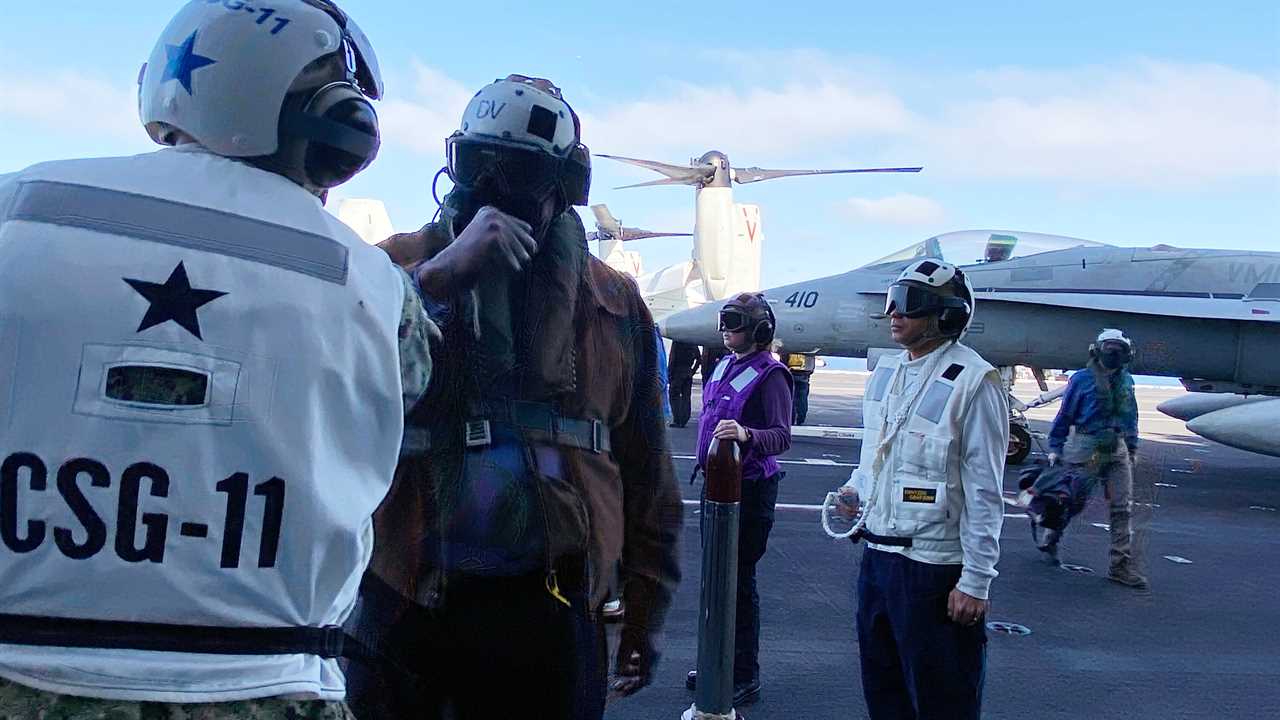
ABOARD U.S.S. NIMITZ, off California — When this aircraft carrier and its city-size crew departed Naval Base Kitsap in Bremerton, Wash., on April 27, George Floyd was still alive.
Donald J. Trump was still president, Georgia had two Republican senators, and some 56,000 people in the United States had died of the coronavirus.
Now, 10 months later, the nuclear-powered warship is returning home to a country vastly different from the one it left. That difference was highlighted on Thursday when the new defense secretary — for the first time, an African-American — landed aboard to talk to a travel-weary and isolated crew.
“Secretary of defense in combat!” came the announcement.
Lloyd J. Austin III, his baritone ringing through the ship’s public-address system, told the sailors and pilots on the Nimitz that he knew what it felt like to be cut off from life during extended deployments: Mr. Austin, a retired Army four-star general, was posted in Iraq about a decade ago for a tour even longer than the Nimitz’s.
But that was on land, in Army bases near Baghdad and flying around to Erbil and Ramadi. The Nimitz sailors and Navy and Marine pilots were at sea, spending 2020 in what sometimes felt like a time warp, sailors said.
They had to quarantine for two weeks before they even boarded the ship and, once on, they basically could associate only with one another, even during port calls.
On the rare occasions that the ship came into port — in Guam or in Manama, Bahrain — the 5,000-strong crew was not allowed traditional shore leave, and had to sleep on board, in berths with around 100 other sailors. They were told not to interact with the public on land, because of the pandemic.
They watched the presidential election returns from the Indian Ocean and woke up the morning of Jan. 7, in the Persian Gulf, to the news that rioters had stormed the Capitol.
Petty Officer First Class Christina Ray, 31, said she turned on the television in her office on the ship’s second deck, and stared at the images. She recalled being aghast at what was happening.
“That type of violence was what we were supposed to be defending the country against,” she said in an interview. “The world at home has become completely different and we don’t know what we are coming home to.”
Latest Updates
- Germans are rejecting AstraZeneca as hundreds of thousands of doses go unused.
- The W.H.O. rings an alarm bell over oxygen shortages in poor countries.
- Vaccinations are on the rise in N.Y.C., but opening up the economy more could counter progress.
Among crew members on Thursday, there was a palpable sense of excitement but some trepidation about what they would find after 10 months in a bubble at sea. Some had lost family members to the virus — after all, more than 450,000 additional people in America had died of the disease while the Nimitz was sailing the world.
The United States they left has waged battles over mask wearing, police shootings, a presidential election and the unprecedented breach at the Capitol by a mob of Trump supporters.
Petty Officer Second Class Fidel Hart, 44, stood in the hangar bay of the Nimitz, at attention, watching Mr. Austin as he awarded medals to some members of the carrier crew.






